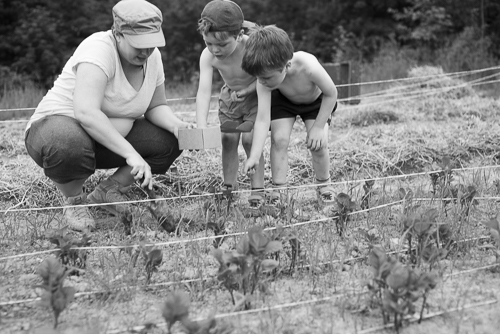
Gardening can benefit the body, mind, and spirit, as well as help build human connections as well as the community. Whether you’re growing herbs, flowers, fruits, or vegetables, positive effects on your life will be part of the harvest you reap. Read on for tips from slow food supporters Slow Pix to learn more.
Strengthen Your Body
Getting a bit of sun while you garden increases your Vitamin D levels, which helps your body to retain more calcium, resulting in stronger bones and joints and even boosting your immune system. The Cleveland Clinic explains that the weight-bearing and resistance exercises from walking, digging, and pulling weeds can help to prevent osteoporosis, as well as strengthen your muscles and endurance.
Revitalize and Calm Your Mind
Studies of the effects of gardening on people with dementia found improvements in levels of stress, agitation, and depression; encouraged engagement with people and the environment; and reduced the amount of medication needed. Other research has documented that exposure to a bacteria common in the soil, M. vaccae, activates the release of serotonin in the brain, which can help with depression. One study suggests that gardening can help to improve memory and cognitive function.
Nurture Your Connections
Gardening with your family, friends, or neighbors can build stronger bonds with these people, according to VeryWell Family. A community garden is a great way to get to know neighbors, share produce with others, and connect with kindred spirits. Include your children in planning, starting, and maintaining the garden, as well as making decisions about who to share the harvest with. Whether your family has a garden on the roof, in a raised bed or other container, or in the ground, it’s a wonderful way to spend time in nature and develop pride in their work.
Many people are learning to value having a dedicated garden space on their property. So, if you decide to sell your property in the future, you may find that your raised or in-ground garden will nurture your home’s appraisal as well as your relationships.
Think About What You’ll do with the Harvest
Whether you grow herbs, flowers, or produce, harvesting the results will be rewarding. You may want to give some away to friends and neighbors or donate to a food bank. You and your household may be excited about savoring the fruits of their own labor.
Another option is selling your harvest. You might even consider starting a new company to pursue agri-business on a small scale, with the possibility of expanding later. Options for growing and selling mushrooms, Christmas trees, sod, flowers, herbs, or fruits and vegetables abound. You could sell your products at a farmer’s market, a roadside produce stand, or sell directly to restaurants or stores.
Improve Your Own Quality of Life
Besides the benefits of the process of gardening, you can reap rewards in the form of fresh fruits, vegetables, and herbs to cook with. If you prefer organic foods, you can make your garden an organic one, and control exactly what products your plants will be exposed to. Your family may be more excited about getting their daily servings of vegetables and fruits when they include homegrown tomatoes, strawberries, and peppers. Studies have shown that elementary school children who help with gardening, harvesting, and preparing the foods they’ve grown are likely to eat more vegetables. The outdoor time and reduction in stress are also benefits.
You Can Start Small
If the idea of gardening seems overwhelming, think about getting started on a very small scale. You could start with a container garden, for example, a window box of flowers, or a large outdoor pot in which you grow tomatoes. Browse the seeds at the hardware store, or get on the mailing list for a seed catalog, which is sure to inspire you, and don’t hesitate to ask established gardeners for guidance.
Embrace the Positive Influences of Gardening
There’s plenty of evidence that gardening of many types can help people be more active and make healthier food choices, reduce depression and anxiety, improve immunity, cognition, and strength, make more social connections, and in general, improve the quality of life for those who participate regularly. So think about what you might be inspired to grow and possibly donate or sell. Gardening could change your life for the better in so many different ways.
The Slow food movement is growing, and Slow Pix seeks to honor and support it. Visit our site to get inspired for new ways to embrace getting back to the earth and learning about all of its benefits.
Maria Cannon ha written this article. Here are her own words: I believe we’re never too young to dedicate ourselves to a hobby. I created Hobby Jr. to encourage young people to find a hobby they love. I suffered from depression and anxiety for years. Her hobbies–gardening, quilting, sewing, and knitting–play a major role in maintaining her mental health.
